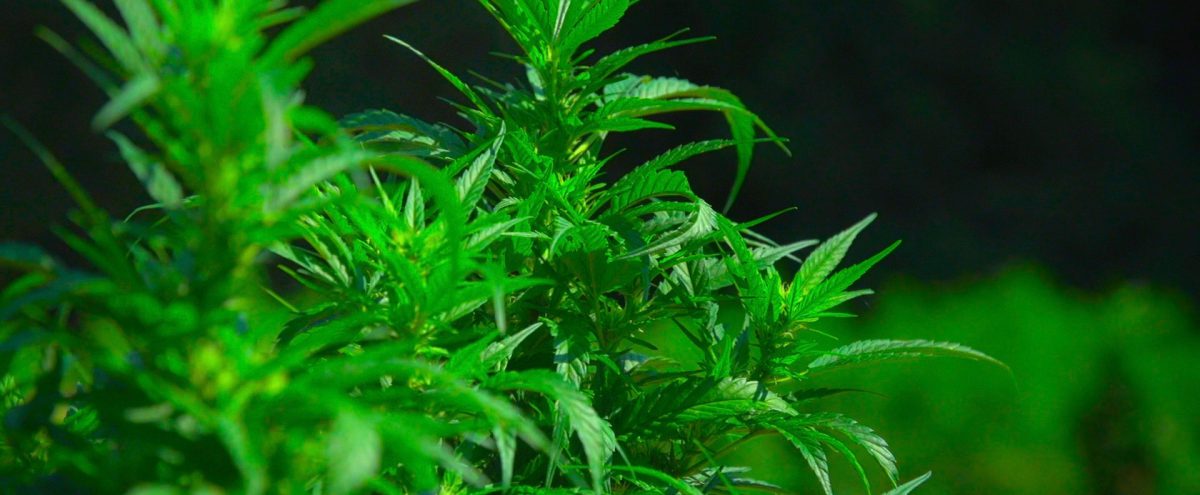
Fresno County has the most hemp growing license applications in the Central Valley with 23. Photo contributed.
Even though hemp was made a legal crop by federal lawmakers back in December 2018, starts of commercial hemp farms in California had to wait for the state to determine its licensing rules.
On April 30, the California Department of Food and Agriculture (CDFA) announced those regulations were in place, allowing county agricultural commissioner offices to began taking hemp farm license applications for the state.
But here in the Central Valley, the set rules haven’t exactly generated stampedes of farmers and investors looking to start hemp farms.
“I’ve accepted 23 [license applications] so far,” said Rusty Lantsberger, assistant agricultural commissioner for Fresno County.
While it’s hard to say whether that’s a lot, considering his office has never had to deal with licensing a new crop before, Lantsberger said that doesn’t seem a lot to him, though “It is more than what I anticipated in the initial stages of this.”
Hemp happenings
Still, Lantsberger said, enough applications have come in to keep his staff busy conducting the approval process, which includes going to the proposed farm sites to ensure no hemp was being grown there beforehand and ensuring that the seeds or seedlings are of the varieties approved by the state — particularly that they produce hemp containing no more than .3% tetrahydrocannabinol [THC].
That’s the psychoactive compound in hemp, and considerably more abundant in hemp’s close cousin, cannabis, that gets people high.
That difference is important, as commercial hemp crops tested as having more than .3% THC will be destroyed, under the direction of the local ag commissioners’ offices.
In Kings County, the number or hemp license applications have been fewer, 10, and even fewer in Madera, where five have been submitted.
In Tulare County, no applications have been submitted, but that’s because the county supervisors in late April voted to approve a 22-month, 15-day moratorium on accepting hemp license applications while they wait for the CDFA to better define their licensing and enforcement rules on hemp, said David Case, deputy ag commissioner for the county.

Supplemental regulations
Under the law, counties can impose their own additional rules for growing hemp, including determining where it can be grown and requiring grows to have specific distances from public roads and property lines, and determining those rules can be a reason to set a moratorium, though Case said Tulare County leaders aren’t planning to develop their own hemp farming rules — though that could change as the more detailed state rules become available.
San Luis Obispo County had 45 hemp farming applications in hand when its supervisors on Wednesday issued a moratorium on taking in any more so officials could develop their own county hemp farming rules — though hemp farming operations already state-approved can go forward with planting.
Meanwhile, in this area, county officials noted that they’re getting lots of calls from people interested in hemp farming.
Interest is there
“We got a call last week from a farmer looking to grow 1,400 acres, but we get a lot of those calls, said Mario Gutierrez, deputy ag commissioner for Kings County.
For years, hemp advocates have touted the thousands of commercial goods that can be derived from the plant, from cloths to plastic and concrete substitutes to food products and animal feed to medicinal oils similar to ones derived from cannabis.
Advocates have also plugged that it potentially can be more lucrative than most of the other crops in the state, and that has gotten the attention of farmers and potential investors.
That certainly caught the interest of Adrian Villarreal, a Fresno-based agricultural real estate broker whose discussions last year with farmers interested in buying land to grow hemp lead them to start a venture to develop a hemp-farming operation.
“The profitability was very high,” he said, based on his conversations with hemp farmers in California and other states who were allowed to grow under restrictive guidelines imposed in the 2014 Farm Bill, but those restrictions ended with the latest bill.
Despite this, Villarreal and his partners haven’t jumped into starting a hemp farm, and they don’t plan to before the current planting season for hemp in the Valley closes around the end of this month.
Uncertainty remains
A big part of the reason is uncertainty, in part because the U.S. Food and Drug Administration hasn’t formally legalized commercial hemp growing yet, he said.
In addition, local county sheriff’s offices haven’t developed systems to track hemp and marijuana — which looks like hemp and can be legally grown in some parts of the Valley, but not others — to identify where the hemp they may encounter came from, Villarreal said.
Add to that the potential legal problems and losses if farmers’ hemp “goes hot” by containing more than .3 percent THC.
“For me, at the end of the day, my growers that I was working with … made the decision not to because there were just too many unknowns of growing, because it’s not like your typical commodity, like almonds or citrus or anything like that,” Villarreal said.
“The other part is having a clear path to an end result of selling your product,” and so far there are few businesses in California processing hemp, and they may not be able to handle a big upsurge in hemp production if it were to take off in the Valley, while larger hemp processors in Colorado and Kentucky are too far away, he said.
Sowing seeds
Another problem slowing the development of hemp farms here is that seed producers — mostly in other states — were caught unprepared for the upswing in demand for hemp seeds once the new farm bill was passed, Gutierrez said.
As such, he said, a lot of would-be hemp farmers don’t yet have access to seeds, particularly those certified for commercial growing in California.
He said some license applicants are working to get around that by buying seeds certified and tested in other states that also meet the California standards.
While there isn’t much activity in planting new hemp farms this year, “in three years, we may see the boom,” along with a surge in hemp processing facilities being built here, Gutierrez said.
Villarreal said the boom may come sooner.
“After this year, I think there are going to be a lot of hemp growers,” as this year, the time between the hemp licensing regulations and the time to start planting was too tight, he explained.
So next year, Villarreal said, he and his partners likely will be among the entrepreneurs starting new hemp businesses.








